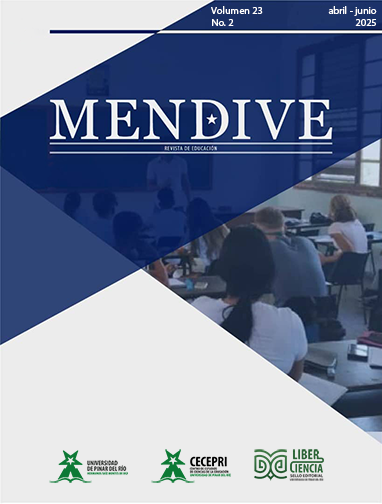Redefining the Institutional Educational Project for police education
Main Article Content
Abstract
This article presents the redefinition of the Institutional Educational Project for police education in Colombia, with the aim of modernizing its foundations, in line with international trends in Higher Education and the doctrinal principles of the police institution. The objective was to transform the Institutional Educational Project through a participatory process that actively incorporated different stakeholders from the educational community and representatives of society, with a view to strengthening the institutional identity and projecting a relevant educational model. Mixed research techniques with an interpretive approach were used as methods, employing a non-experimental design. Surveys were administered to members of the educational community and focus groups were organized with stakeholders, allowing for the collection and analysis of diverse perceptions and expectations regarding police training. The results made it possible to identify and define key elements that configure the identity of police education, such as: institutional values, graduate profile, pedagogical approach, and the strategic horizon of training. Likewise, the need to integrate educational practices consistent with the contemporary challenges of public service, citizen security, and respect for human rights was recognized. The conclusions emphasized the importance of consolidating the Institutional Educational Project as a coordinating instrument for the educational project, highlighting the central role of the teacher, the value of collaborative work, and the need to adapt the curriculum to changing contexts, ensuring relevant, humanistic, and high-quality police training.
Downloads
Article Details

This work is licensed under a Creative Commons Attribution-NonCommercial 4.0 International License.
References
Ausubel, D. P. (2002). Adquisición y retención del conocimiento: Una perspectiva cognitiva. Ediciones Paidós Ibérica. https://books.google.com.co/books?id=VufcU8hc5sYC
Bolívar Botía, A. (2000). Los centros educativos como organizaciones que aprenden: Promesa y realidades. Editorial La Muralla. https://books.google.com.cu/books?id=PfO_j9x-ZnIC
Durán Acosta, J. A. (1994). El proyecto educativo institucional: Una alternativa para el desarrollo pedagógico-cultural. Editorial Magisterio. https://books.google.com/books?id=fEArAQAAIAAJ
Fullan, M. (2002). El significado del cambio educativo: Un cuarto de siglo de aprendizaje. Profesorado, Revista de Currículum y Formación del Profesorado, 6(1-2). https://www.ugr.es/~recfpro/rev61ART1.pdf
Mosquera Mosquera, C. E., & Rodríguez Lozano, M. N. (2018). Proyecto educativo como fundamento para pensar la subjetividad política desde la cultura escolar. El Ágora USB, 18(1), 256-268. https://doi.org/10.21500/16578031.2771
Pardinas, F. (2005). Metodología y técnicas de investigación en ciencias sociales. Siglo XXI. https://books.google.com.cu/books?id=PDqKweTKbhUC
Pita Torres, B. A. (2020). Políticas públicas y gestión educativa: Entre la formulación y la implementación de las políticas educativas. Civilizar Ciencias Sociales y Humanas, 20(39). https://doi.org/10.22518/jour.ccsh/2020.2a09
Ruiz Martín del Campo, E. (2003). La entrevista como encuentro de subjetividades. e-Gnosis, 1. https://www.redalyc.org/articulo.oa?id=73000109
UNESCO. (2021). Pensar más allá de los límites: Perspectivas sobre los futuros de la educación superior hasta 2050. Instituto Internacional para la Educación Superior en América Latina y el Caribe de la UNESCO. https://unesdoc.unesco.org/ark:/48223/pf0000377529


